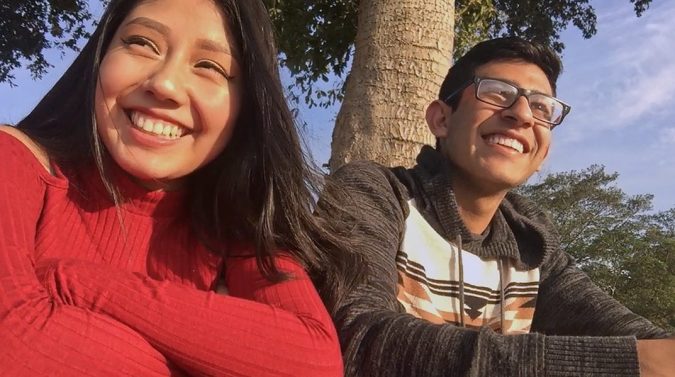The high school yearbook gets a new makeover in Ivete Lucas and Patrick Bresnan’s absorbing documentary, Pahokee. Set in the namesake small Florida town along the shores of Lake Okeechobee in the southern half of the state, Pahokee follows four students – Na’Kerria, Jocabed, Junior, and BJ – during the highs and lows of their senior year. Months melt into each other, differentiated only by the different school events like homecoming, football season, and prom, a blur considering it took 10 months of filming to capture it all. It’s a documentary full of hope, life and beauty in a place mostly known for its struggles.
The rural parts of Florida haven’t bounced back from the economic crash of 2008 and subsequent hurricanes like the state’s major cities. In recent years, Pahokee’s neighboring lake, the largest in Florida, has suffered serious pollution issues. One of the town’s biggest employers is the sugar cane industry, and the field where many locals spend their days under the Florida sun makes an appearance in the film. The population is majority black or Latino, mostly of Mexican descent, and the median household income hovers near the federal poverty level. If any high school graduates have aspirations for college, they will have to leave Pahokee.
However, those are not the stories that Pahokee focuses on. The students are not defined by their family’s troubles, but by what they’re interested in and what their lives are like in school and home. Na’Kerria, an outgoing cheerleader who dreams of going to college, must figure out how to finance her goals of higher education. Jocabed, who moved with her family to Pahokee from Mexico and works with her parents at their roadside taqueria, has hopes of getting into a good school and a landing a scholarship to match her top grades and hard work. Junior, a drum major in the school’s marching band, is a young father trying his best to make sure he can provide for his daughter, while BJ plays the part of the quintessential student-athlete as the football team’s co-captain, working his way to an athletic scholarship for college.
The film’s imagery looks colorful and bright, whether it’s the school’s blue awnings, sparkly parade floats or the Sunshine State’s famous sunsets. To encapsulate the students’ experiences, the directors add in wide shots of the surrounding area, weave in location sounds and show other things that are happening at the same time. This makes the documentary less of an extremely detailed portrait of the students and more of a looser, free-flowing experience. Occasionally, the filmmakers’ sleek fly-on-the-wall observational-style shots give way to the students’ handheld, selfie-style video diaries which allows the students to directly address the audience with the feelings they’re going through at that moment.


As with many other nonfiction movies, the story changes as life throws the subjects curveballs. One of the surprise twists in the film has a long build up over several months, and at first, the school and its students take a victory lap for their athletic success. Then a technicality arises, and reality sets in. It’s not just the team that’s affected, but the whole school is, and perhaps also the town itself.
Just as effective as the narrative turns are the smaller, observational moments in the movie. They’re the moments that we at that age many never think about or notice, or they’re the moments that stick with us forever. In the scene leading up to prom, the students and their families gather at a park to pose for pictures. It’s a celebratory time, a flash of phone camera lights, glittering sequenced dresses and slick suits and ties combinations. There’s a sense of pageantry in the air as the teen girls try to hold their pose in unfamiliar high heels by leaning onto their dates. One young woman takes the occasion to send a message, wearing a custom-made dress featuring photos of Trayvon Martin and other black men, women and children killed by the police. In another shot in the scene, one of the football players helps his disabled dated into the car to head to prom. It is a singular memory for many kids heading to one of their last school functions.
Pahokee is the feature debut of its directors Lucas, who was born in Brazil and raised in Mexico, and her partner, Bresnan. The pair filmed and worked in the community making shorts for years before entrenching themselves for this massive feat, and the casual acceptance of their presence helps Pahokee feel like something special. It’s an insight into the future of the country and the state, a rebuke to the assumption that rural farming communities are inherently white and a snapshot for this class of 2017 to revisit in the years to come.
Pahokee premiered at the 2019 Sundance Film Festival.




